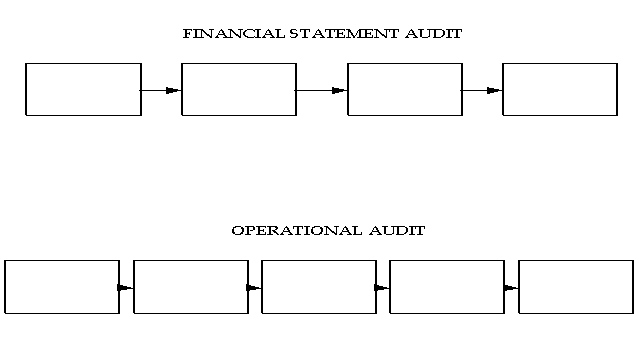Exam 21: Internal, Operational, and
Exam 1: Auditing and the Public Accounting69 Questions
Exam 2: Financial Statement Audits and84 Questions
Exam 3: Professional Ethics86 Questions
Exam 4: Auditors Legal Liability67 Questions
Exam 5: Overview of the Audit Process49 Questions
Exam 6: Audit Evidence, Audit Objectives,71 Questions
Exam 7: Accepting the Engagement and56 Questions
Exam 8: Materiality Decisions and Performing Analytical Procedures47 Questions
Exam 9: Audit Risk, Including the Risk of Fraud44 Questions
Exam 10: Understanding Internal Controls91 Questions
Exam 11: Audit Procedures in Response to Assessed Risks: Tests of Controls18 Questions
Exam 12: Audit Procedures in Response to Assessed Risks: Substantive Tests82 Questions
Exam 13: Audit Sampling in Substantive Tests72 Questions
Exam 14: Auditing the Revenue Cycle72 Questions
Exam 15: Auditing the Expenditure Cycle80 Questions
Exam 16: Auditing the Production and81 Questions
Exam 17: Auditing the Investing and77 Questions
Exam 18: Auditing Investments and92 Questions
Exam 19: Completing the Audit and Postaudit102 Questions
Exam 20: Attest and Assurance Services, and Related Reports61 Questions
Exam 21: Internal, Operational, and103 Questions
Select questions type
Internal auditor independence would not be impaired if the auditor:
(Multiple Choice)
4.9/5  (37)
(37)
The general standards for the professional practice of internal auditing include the following:
-The director of internal auditing should provide written policies and procedures to guide the audit staff.
_____
(Multiple Choice)
4.9/5  (34)
(34)
Like financial statement audits, an operational audit ends with a report on the findings.
(True/False)
4.9/5  (30)
(30)
The general standards for the professional practice of internal auditing include the following:
-Internal auditors should maintain their technical competence through continuing education.
_____
(Multiple Choice)
4.9/5  (31)
(31)
Certified internal auditors are licensed by the states in which their firms are headquartered.
(True/False)
4.7/5  (39)
(39)
GASAS, like GAAS, requires auditors to consider the risk of fraud.
(True/False)
4.8/5  (39)
(39)
Internal auditor's primary reporting responsibility is to third parties.
(True/False)
4.8/5  (36)
(36)
The general standards for the professional practice of internal auditing include the following:
-Internal auditors must comply with professional standards of conduct.
_____
(Multiple Choice)
4.8/5  (36)
(36)
The general standards for the professional practice of internal auditing include the following:
-Internal auditors should review the means of safeguarding assets and, as appropriate, verify the existence of such assets.
_____
(Multiple Choice)
4.8/5  (32)
(32)
Complete the chart below by labeling the boxes. Explain the major differences between the phases of the financial statement audit and the operational audit.

(Essay)
4.9/5  (34)
(34)
GAGAS include the AICPA generally accepted auditing standards for field work and reporting.
(True/False)
4.8/5  (41)
(41)
As indicated in the second additional reporting standard, GAGAS requires auditors to report deficiencies in internal control that they consider to be reportable conditions.
(True/False)
4.7/5  (32)
(32)
AICPA standards recognize an operational audit as a form of:
(Multiple Choice)
4.9/5  (33)
(33)
If the operational audit report is long and detailed, the report may begin with an executive summary of the findings and recommendations.
(True/False)
4.9/5  (38)
(38)
The IIA Code of Ethics Rules of Conduct regarding integrity include all of the following except:
(Multiple Choice)
4.9/5  (42)
(42)
A general standard that is unique to governmental audits is:
(Multiple Choice)
4.9/5  (35)
(35)
In selecting an auditee for operational auditing, an understanding of the potential auditees is obtained by all of the following except:
(Multiple Choice)
4.8/5  (42)
(42)
GAGAS requires auditors to report deficiencies in internal control that they consider to be reportable conditions. Examples of such reportable conditions include all of the following except:
(Multiple Choice)
4.8/5  (33)
(33)
The general standards for the professional practice of internal auditing include the following:
-Internal auditors should collect, analyze, interpret, and document information to support audit results.
_____
(Multiple Choice)
4.9/5  (37)
(37)
Showing 21 - 40 of 103
Filters
- Essay(0)
- Multiple Choice(0)
- Short Answer(0)
- True False(0)
- Matching(0)